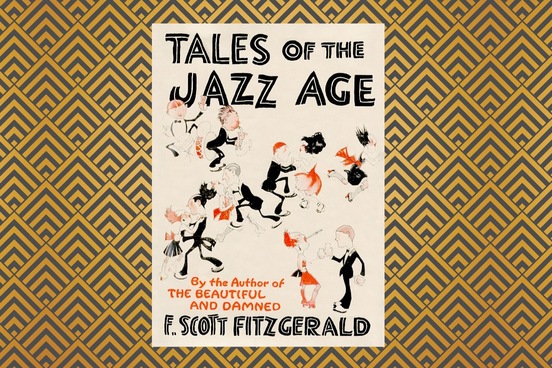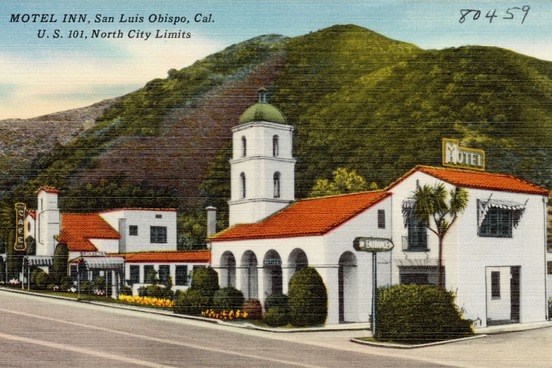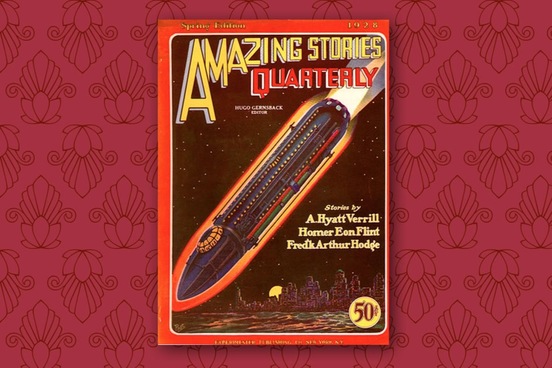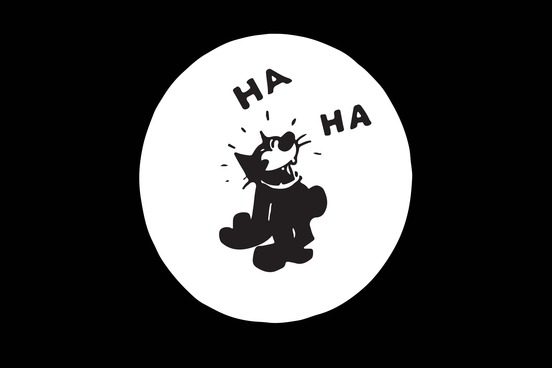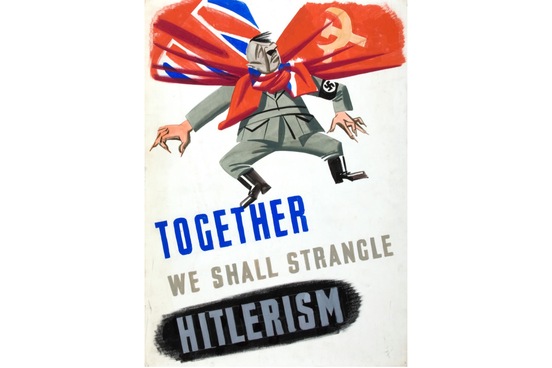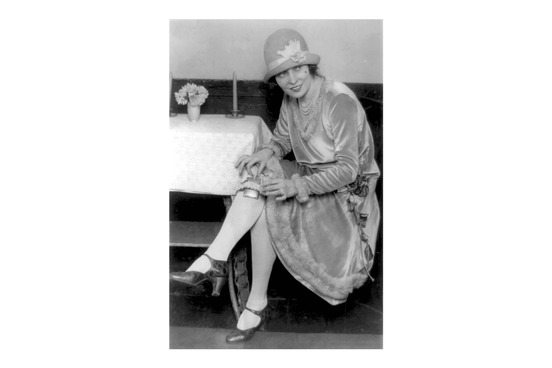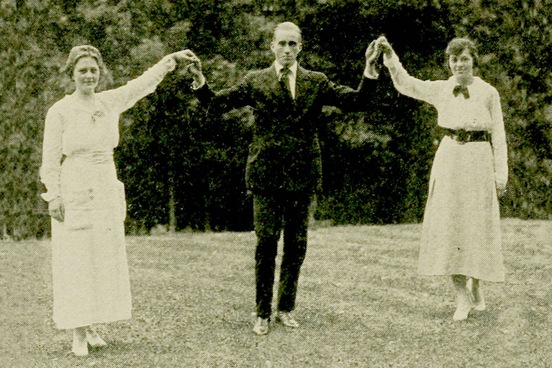Definition:
: a performer of jazz
About the Word:
The term jazz age - often said to have been coined by F. Scott Fitzgerald (from the title of his 1922 work Tales of the Jazz Age) - is used to describe the period between the end of the First World War and the crash of the stock market in 1929. Fitzgerald did not in fact coin this expression (it had been in use for several years before his book was published), but the 1920s was a decade rich in words to describe the music of jazz. Jazzman began to be used in print in 1926, boogie-woogie dates from 1928, and the vibraphone (which soon became widely used in jazz music) was first so called in 1924.
Example:
"His thousands of admirers are happy to know that no anti-toxin has yet been discovered to cure this master jazzman of his 'illness!'" The Rockford Register-Gazette, 25 January 1927
Definition:
: a person who uses cocaine compulsively
About the Word:
It's tempting to think of the 1960s as the decade in which drug culture took off and began to destroy the minds and souls of our youth, but drugs and the abuse of them were common well before then. The cokehead likely existed before 1922, but it is in that year that we first see written evidence of the word. Also in this decade are the first recorded uses of junkie (1923) as well as reefer (1927) and its synonym, Mary Jane (1928).
Example:
"Addicts are nicknamed according to the kind of drug they use. A morphine addict is called a 'hophead' or 'junkhead.' One addicted to cocaine is called a 'cokehead,' 'coke,' 'snowbird,' 'sniffer.' An opium addict is a 'yenshee baby.'" - El Paso Herald, 12 May 1923
Definition:
: one that attends motion pictures with frequency
About the Word:
In the early 20th century France was the center of the motion picture industry. However, by the beginning of the 1920s the focus had moved to the United States, in particular Hollywood. The 1920s saw the first use of a large number of words associated with the film industry, beginning at the birth of the decade with cinemagoer, which has its first use in 1920. Cinemagoer is shortly followed by screenwriter (1921), fan mail (1924), and sound track (1928).
Example:
"American producers and directors, not content with flooding this country with Hollywood-made tripe, and now to descend on Britain - complete with Grables, Sinatras and child monstrosities - to make films in this country with a 'box-office' appeal to American cinemagoers." - Frederick Mullally, The Call, 31 December 1945
Definition:
: an establishment which provides lodging and parking and in which the rooms are usually accessible from an outdoor parking area
About the Word:
The number of registered drivers in the US increased from about 8 million to almost three times that number between 1920 and 1930, and the new car culture gave birth to a plethora of words to accommodate this industry. The word motel (formed by blending the words motor and hotel) dates from 1925, as drivers began to take enough long trips to necessitate having places for them to sleep near the roads they were travelling on. The 1920s also saw the birth of gas station (1925), license plate (1924), and driver's license (1926).
Example:
"This gal is too old for a baby-sitter and too young for a motel. Suggest that she get a room at the 'Y. W.'" - Dear Abby (Abigail Van Buren), The Springfield (Massachusetts) Union, 11 June 1958

Atom Bomb
Definition:
: any bomb whose explosive power is due to the release of atomic energy
About the Word:
The atom bomb (also called the A-bomb, and the atomic bomb) is seen as one of the great signifiers of the modern age. Oddly enough, the term for this bomb predates the making of the bomb itself (the first one was exploded in 1945). H G Wells was apparently the first to use phrase atomic bomb; he did so in 1914, well before atoms were being split. Atom bomb began to be used in the early 1920s. Also used first in the 1920s were radiation sickness (which did not require an atom bomb, although atom bombs greatly increased its severity), dating from 1924, and arms race, from the same year.
Example:
"So there is no use of fighting a situation which has become an institution and for which there is no remedy excepting that of blowing up Paris by an atom bomb as forecasted by H. G. Wells some years ago." - L.W. Alwyn-Schmidt, in Color Trade Journal, 1921
Definition:
: a rocket-propelled ship
About the Word:
Similar to the atom bomb, the rocket ship was talked and written about well before it existed. The first mention of these was in 1925, as people began to speculate about whether sending people and things in ships powered by rockets was on the horizon. Around this time we also see words concerning the regulation of the nascent aviation industry, which began in the 1920s to transport mail and passengers via air; air traffic control is first used in 1920.
Example:
"Many inventors and engineers believed it could be done; photographs of 'rocket ships' of varying designs were broadcast and reputable magazines carried articles and drawings explaining just how the feat could be accomplished." - Rockford Republic, 14 September 1928
Definition:
: a machine in the form of a human being that performs the mechanical functions of a human being but lacks emotions and sensitivity
About the Word:
Robot comes from the title of a play by the Czech writer Karel Čapek, R.U.R.: Rossum's Universal Robots, published in 1920. Čapek's play is a bleak look at a society populated with mechanical workers, the titular robots which have been created from synthetic matter. The play was quite popular, and within a few years the word had made the leap across the Atlantic, and was being used in English. By the end of the decade robotic (1928) had also been adopted.
Example:
"Robots to relieve mankind from toil" - Dallas Morning News (headline), 15 October 1922
Definition:
: a highly admired or exceptionally excellent person or thing
About the Word:
In addition to being a decade of flappers (a word which actually began being used in the 1880s) and mah jongg (a trademarked name that was first used in the 1920s), the 1920s were full of playful expressions, many of which have survived to this day. The bee's knees (1921) and the cat's meow (1926) both first saw use in this decade, as did the cat's pajamas (1922).
Example:
"As for Mr. Kirby, his appeal mystifies me, but I once knew a maiden aunt who thought he was the cat's meow." The Rockford Register-Republic, 12 September 1966
Definition:
: the extreme nationalistic doctrines of the German National Socialist party under the leadership of Adolf Hitler, from about 1930
About the Word:
Pejoration is a word used by linguists for the process whereby the meaning or connotations of a word will take a turn for the worse. Few have experienced a greater case of this than have two words which began in the 1920s to describe political movements: Hitlerism (1925) and fascism (1921). The former first saw use in English in 1925, and was simply then the word used to describe the nationalistic tenets of the German National Socialist party. Fascism initially referred simply to the doctrines of the fascisti, the Italian political party which gave rise to Benito Mussolini.
Both words have come to denote brutal and authoritarian endeavors, often without political affiliation.
Example:
"It probably marks the high water mark of Hitlerism in Germany, for it is inconceivable that a mountebank of the type of Adolf Hitler can long survive in an orderly community." - The Rockford Republic, 22 September 1930
Definition:
: a contemptuous lawbreaker; especially : one who ignores parking tickets
About the Word:
Scofflaw, a word that began with a slightly different meaning than it has today, was created in 1924. We know this because it came about as the result of a contest sponsored by a man named Delcevare King, who wanted to create a word that would be used to describe a person who did not observe the rules of Prohibition.
Example:
"Delcevare King of Quincy last night announced that 'scofflaw' is the winning word in the contest for the $200 he offered for a word, to characterize the 'lawless drinker' of illegally made or illegally obtained liquor." The Boston Herald, 16 January 1924
Definition:
: relating to sexual relationship with someone other than one's spouse
About the Word:
There is a curious discrepancy in the English language between the number of words to describe a man who has an unfaithful wife and the number to describe a wife so afflicted. There are considerably more words for the wronged male (cuckold, cornuto, horn, hoddypoll, tup, wittol, etc.) than there are for the woman (cuckquean is the only one I am aware of). This should not be taken as evidence of any lack of moral turpitude on the part of the female of the species.
In any event, in 1925 we get a nice gender-neutral word, extramarital, which can be used without fear of impugning either sex. The 1920s also saw the first use of sugar daddy (1926), and the famous whoopee of making whoopee (1924).
Example:
"For European men, and women too, for that matter, have their extramarital love affairs." - Carol Bird, The San Francisco Chronicle, 13 January 1929
